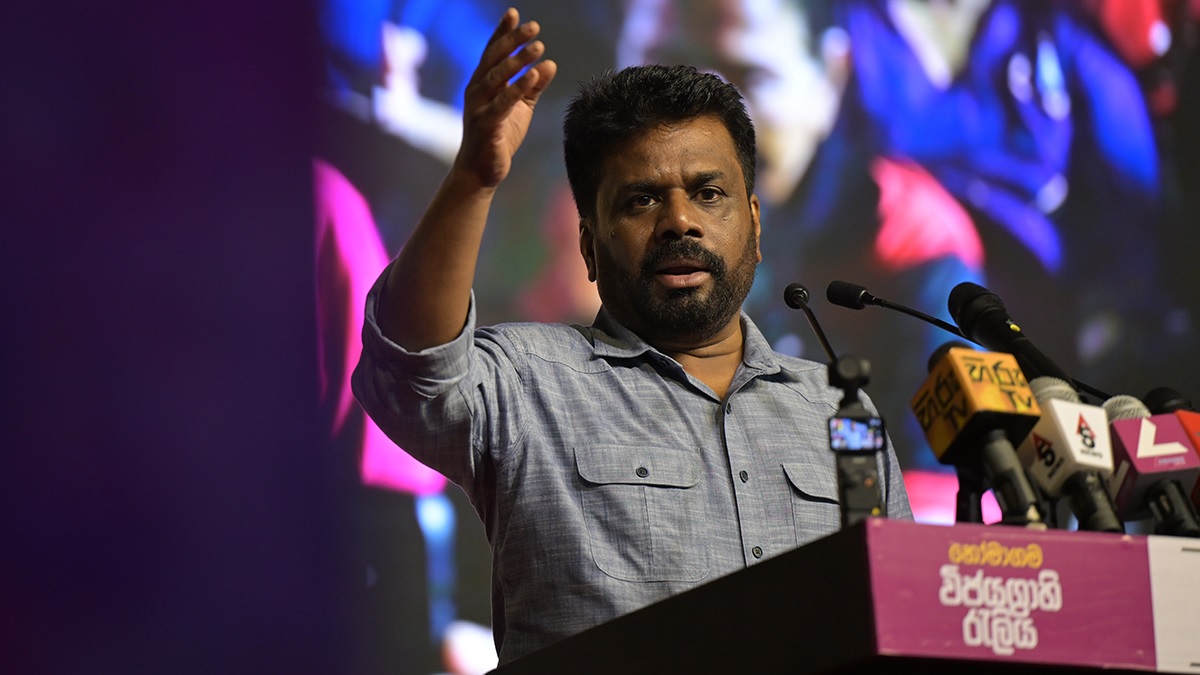
Anura Dissanayake Emerges as a Key Contender in Sri Lanka’s Presidential Election
Anura Kumara Dissanayake, leader of the Janatha Vimukthi Peramuna (JVP) and the National People's Power (NPP) coalition, has become a prominent contender in Sri Lanka’s presidential election set for September 21, 2024. Dissanayake, whose party has historically been on the political fringes, now stands as a serious challenger to the country’s established political leaders. The election features 38 candidates, including notable figures such as Namal Rajapaksa, Sajith Premadasa, and current President Ranil Wickremesinghe.
Dissanayake’s recent rise in politics can be traced to the mass protests of 2022, which were sparked by Sri Lanka’s economic collapse. The resulting shortages of essential goods and inflation led to nationwide demonstrations known as the Aragalaya movement, which ultimately forced the resignation of President Gotabaya Rajapaksa. The JVP played a significant role in these protests, positioning itself as an advocate for social justice and an end to corruption. This marked a turning point for the party, moving it from the margins of Sri Lankan politics to a potential leadership role.
Historically, the JVP has been associated with violent Marxist uprisings in the 1970s and 1980s, but under Dissanayake’s leadership, the party has sought to distance itself from this past. In 2014, Dissanayake publicly apologized for the violence associated with the party’s earlier activities, signaling a shift toward a focus on electoral democracy and anti-corruption efforts.
The central message of Dissanayake’s presidential campaign is his commitment to combating corruption, an issue that resonates with many Sri Lankans affected by the country’s economic challenges. However, despite efforts to reform the party’s image, Dissanayake continues to face criticism related to the JVP’s past and its stance on issues such as the civil war and Tamil separatism. The party’s position on the 13th Amendment, which concerns devolution of powers to provincial councils, has also drawn scrutiny.
Dissanayake’s economic platform advocates for a pro-trade approach, focusing on simplifying tariffs, improving the business environment, and tackling corruption. He has raised concerns about the terms of Sri Lanka’s current agreement with the International Monetary Fund (IMF) and suggested that he might seek to renegotiate the deal if elected, aiming to make it more favorable to ordinary citizens.
As the election approaches, Dissanayake faces the challenge of overcoming the dominance of Sri Lanka’s two main political groupings, the United National Party (UNP) and the Sri Lanka Freedom Party (SLFP). His ability to build a broad base of support and follow through on his anti-corruption promises will be key to his chances in the upcoming election.
Stichworte







